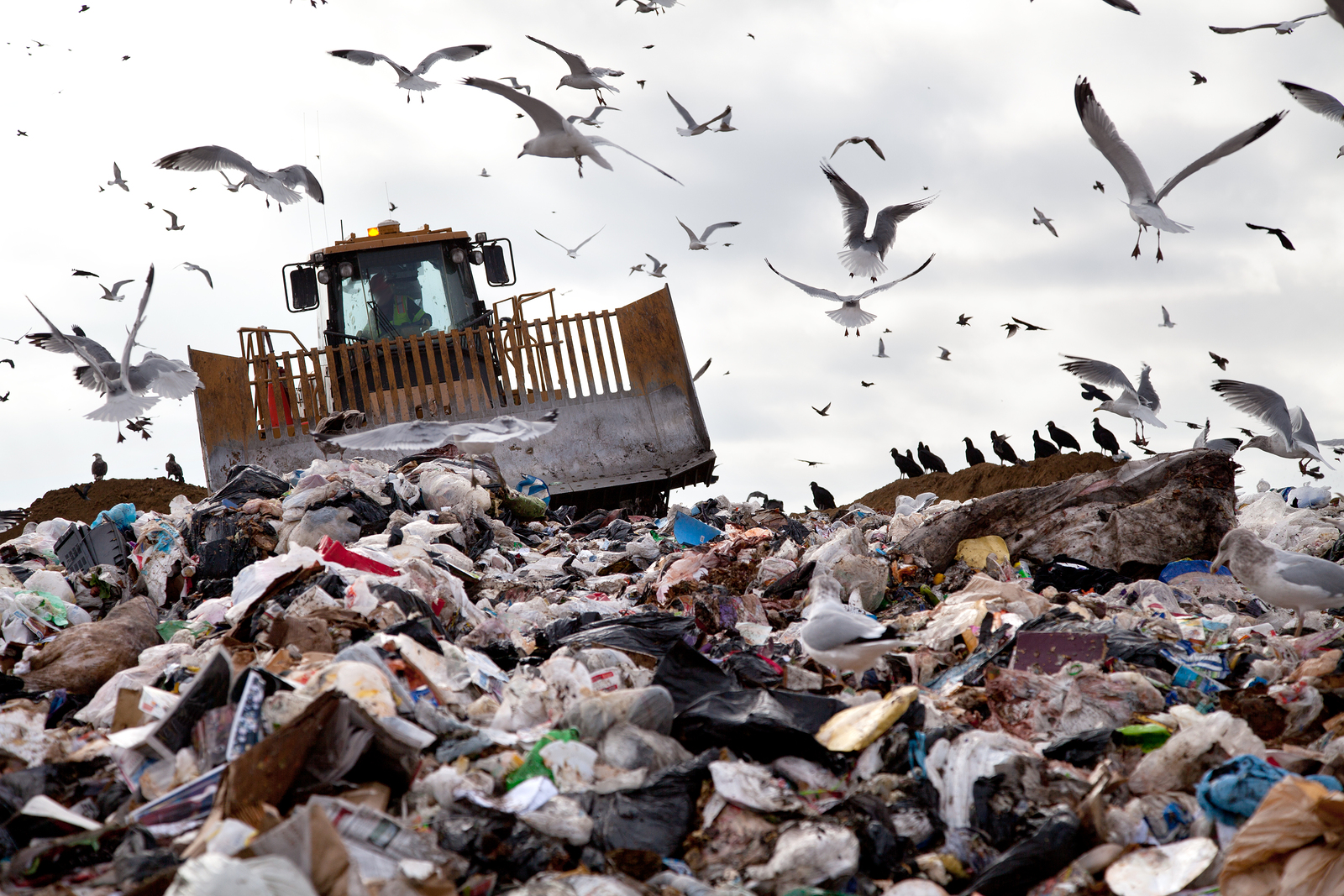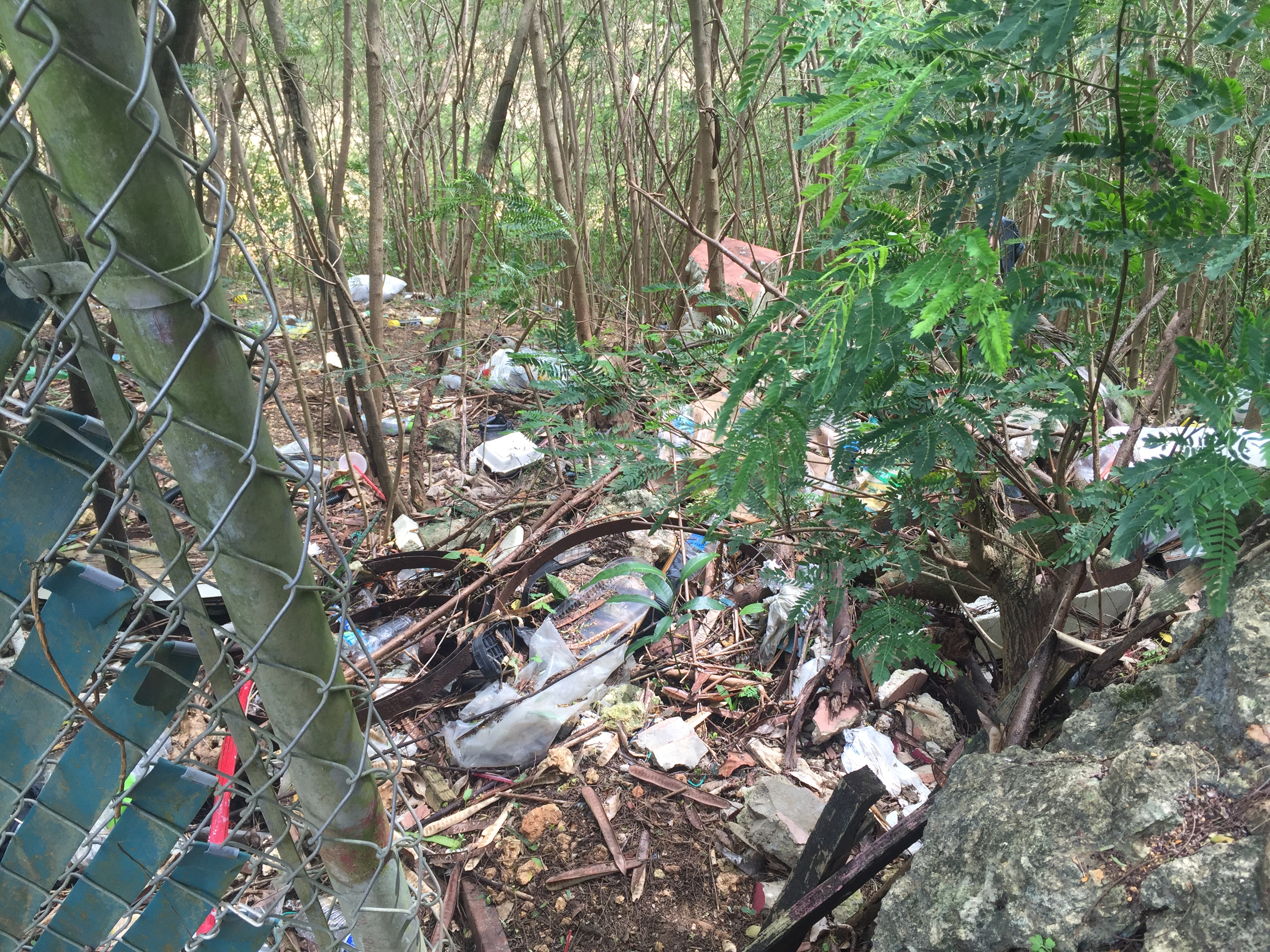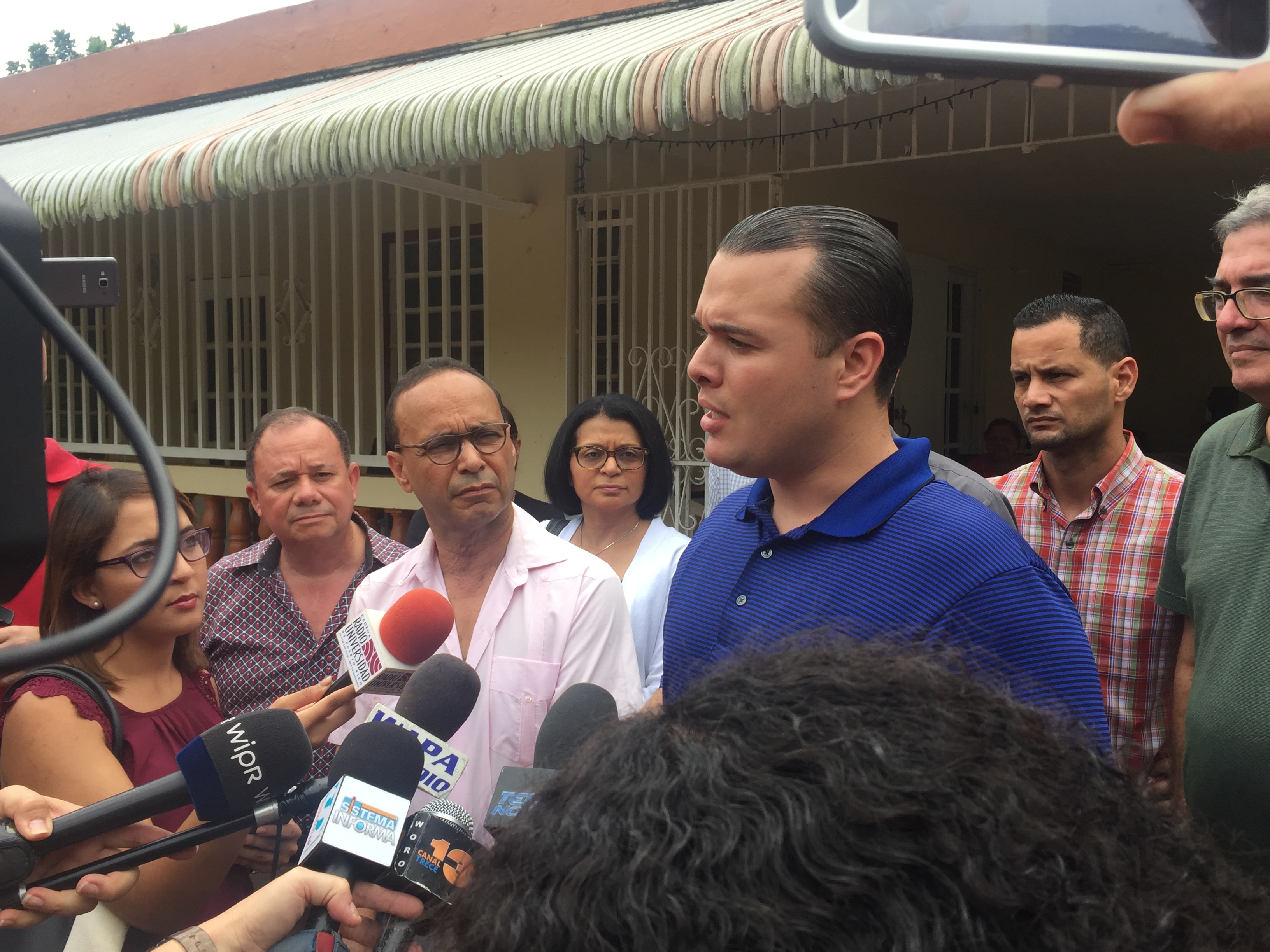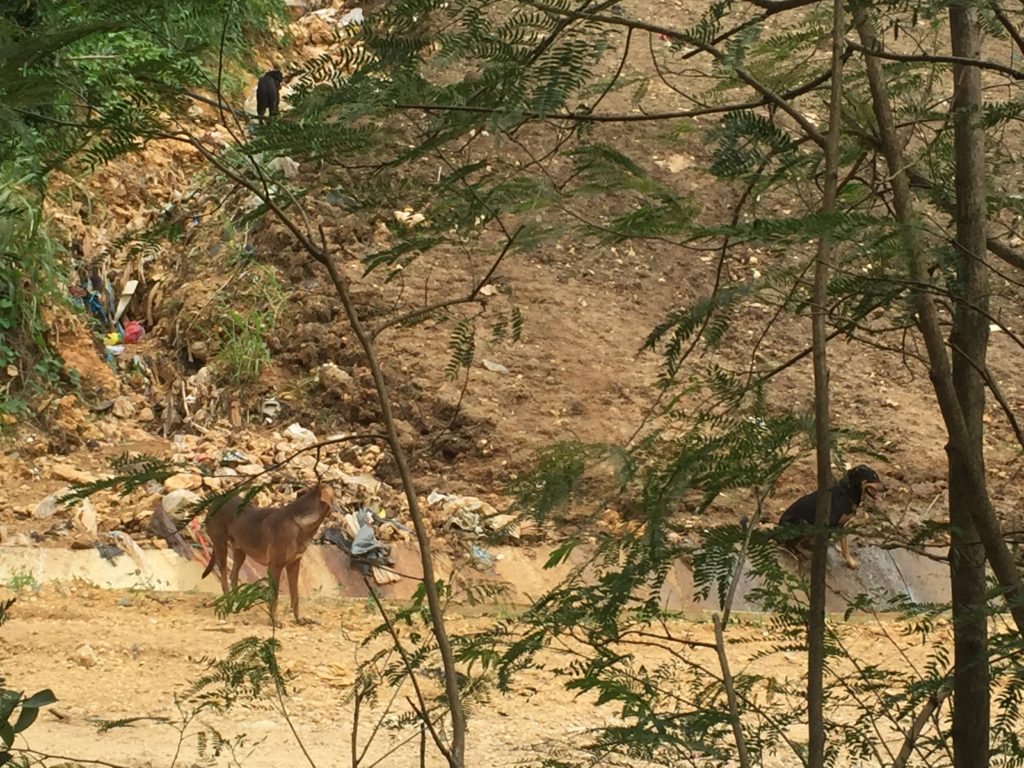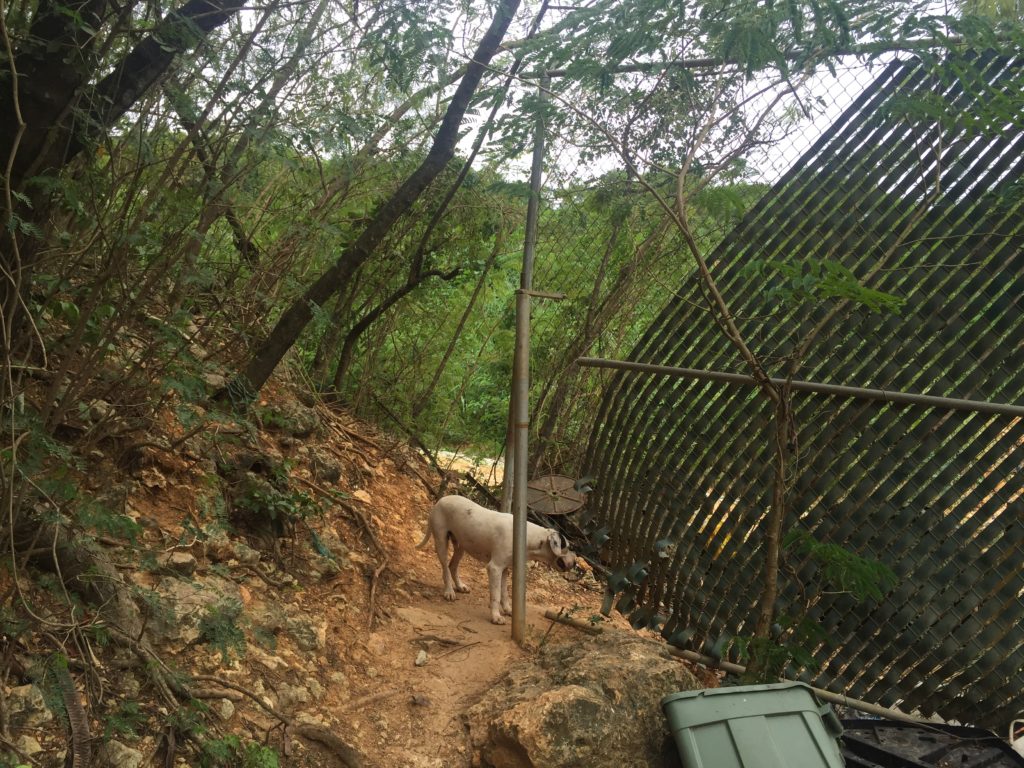Puerto Rico Advocacy Group Calls on Governor, EPA to Act on Landfill Crisis
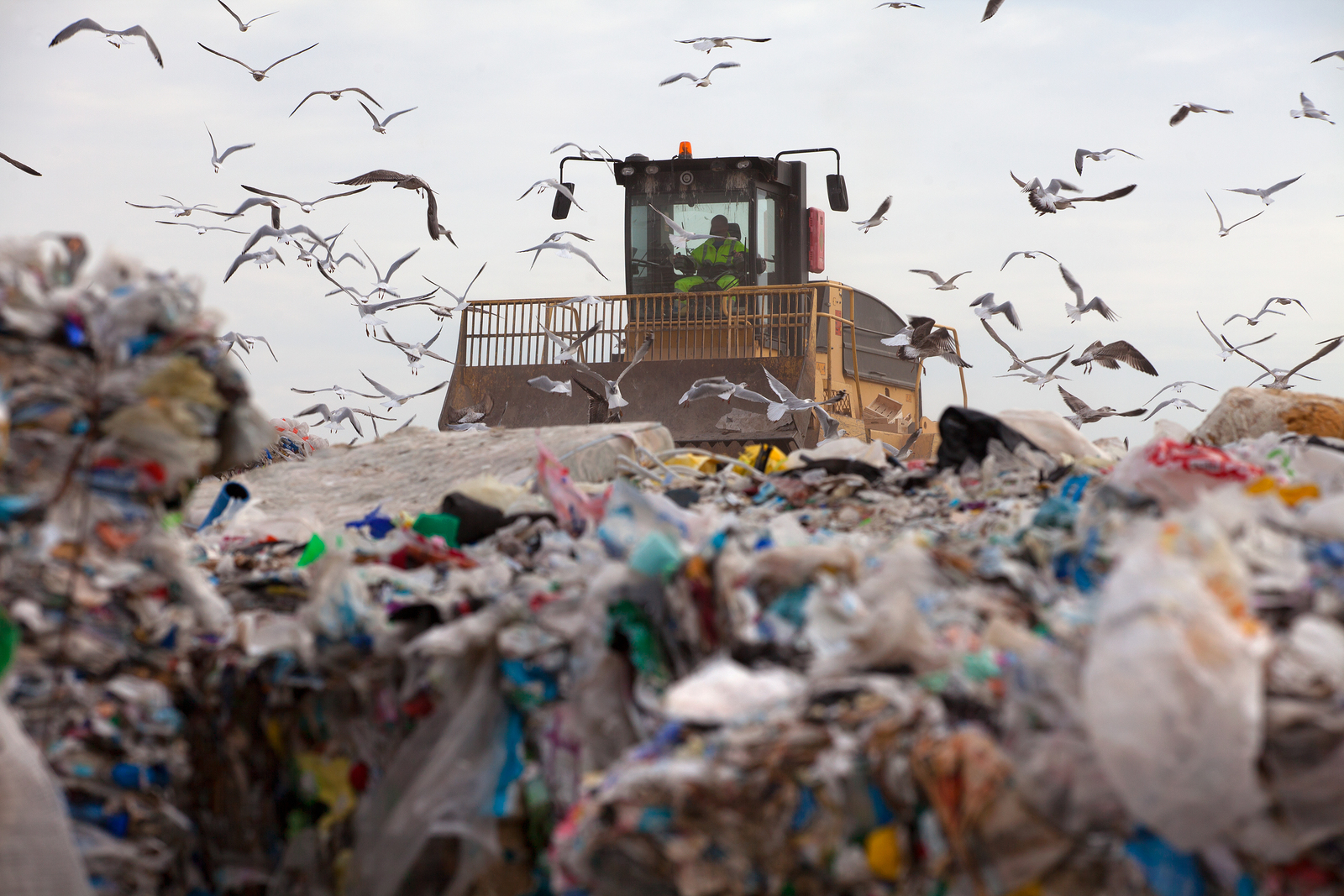
While Puerto Rico Gov. Ricardo Rosselló is in Washington D.C. this week, a landfill watchdog group is pushing for him to ask the Environmental Protection Agency for more funds to close several of the island’s overfilled landfills.
Puerto Rico Limpio, a landfill citizen’s action group in the territory, sent a letter, obtained by InsideSources, to the governor asking him to take action in stopping the illegal dumping and expansion of the Toa Baja landfill.
“The situation at the Toa Baja municipal landfill underlines the urgency of this matter,” wrote Hiram Torres Montalvo, cofounder of Puerto Rico Limpio, in the letter. “Widespread dumping and the illegal expansion of the landfill continues, exposing residents to toxic fumes, contaminated waters, and illicit gas that poses an imminent danger of explosion and fire. This has made the neighborhood of Candelaria unsafe, and uninhabitable for its residents.”
In 2008, the EPA determined that the Toa Baja landfill placed “an imminent and substantial endangerment to health and the environment” and ordered the landfill to stop accepting waste at the main part by June 2010, with plans to close it completely to follow that order. InsideSources went to Puerto Rico in October to report on the crisis firsthand and saw how the Toa Baja landfill was impacting the neighborhood next to it. However, the landfill was still open and trucks were driving in to dump more waste at the site.
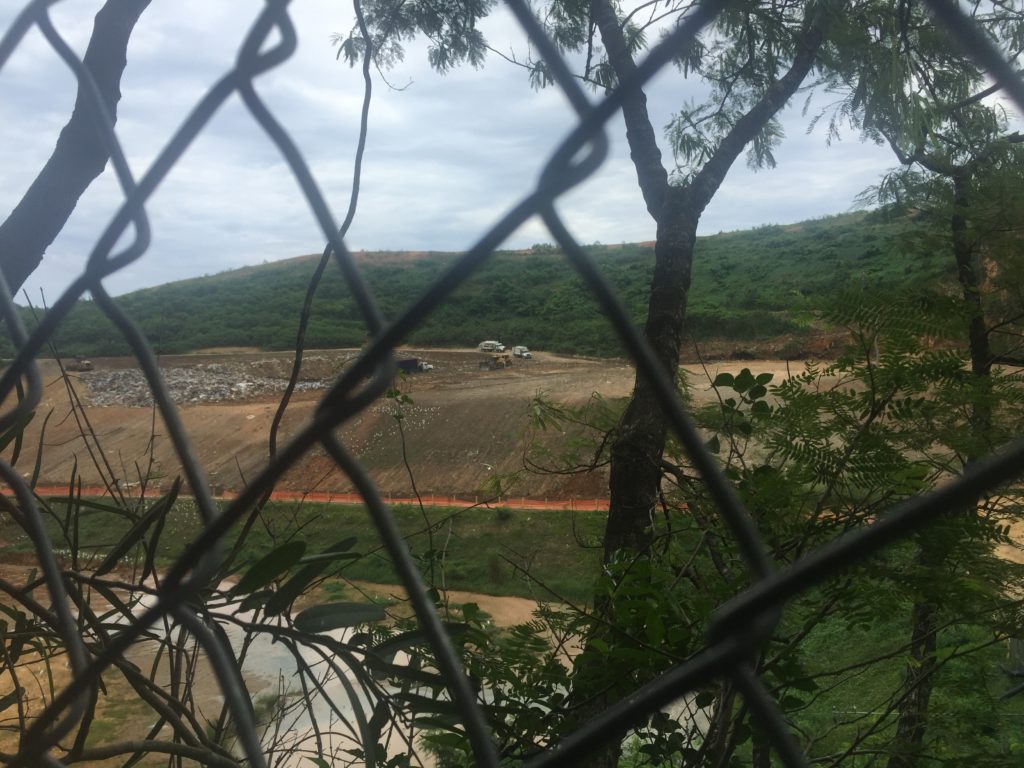
A view of the Toa Baja landfill from the Candelaria neighborhood, just outside of San Juan, P.R. (Photo Credit: Kyle Plantz)
Puerto Rico’s landfill crisis has been unchecked for the past 20 years. The EPA granted local authority of the 29 active landfills on the island to the Environmental Quality Board.
However, Puerto Rico Limpio published a bombshell report in August that said 19 out of the 29 active landfills in Puerto Rico are non-compliant with federal rules and the EPA has been ignoring these problems, despite several internal reports suggesting EPA inspectors knew about it.
To this day, many of the landfills are over capacity and are not following EPA regulations, such as placing a plastic lining between the garbage and the soil, covering the waste each night, and properly maintaining and removing dirty water lakes from trash runoff, which could end up in nearby neighborhood wells for drinking water.
The EPA announced last year that they would close the Cayey and Arroyo landfills in Puerto Rico within two to three years, but activists said the EPA is just making false promises again since several other landfills were supposed to close, but are still operating today, like the Toa Baja landfill.
Torres Montalvo is hopeful that the EPA, under new direction from administrator Scott Pruitt, will make the landfill crisis a priority and is calling on Rosselló to make it happen.
“Governor, you have the opportunity to change this. You ran for and have governed to date on ensuring Puerto Ricans are not treated as second-class citizens. You have the power to close the landfill. You have the authority to ask the EPA for immediate financial and technical assistance,” the letter states.
Rosselló and Federal Oversight Board Chairman Jose Carrion III are in the nation’s capital to testify before Congress on the progress the Commonwealth has made since former President Barack Obama signed The Puerto Rico Oversight, Management, and Economic Stability Act (PROMESA) into law last year.
A report from the Congressional Task Force on Economic Growth in Puerto Rico released in December found that most of Puerto Rico’s landfills are in violation of EPA’s regulations governing solid waste management.
Yet, in a November letter to Puerto Rico Limpio, former EPA Region 2 Administrator Judith Enck painted a rosier picture of the federal agency’s handling of the landfill crisis. She pointed to progress being made with 10 landfills operating with fully-lined disposal cells and even 15 sites implementing a mosquito control plan. The landfills became a breeding ground for mosquitoes during the height of the Zika virus emergency on the island.
“The EPA continues to investigate the landfills on the island, and where necessary, will take legal action,” Enck wrote in the letter. “Thus, the agency has acted and will continue to act to protect public health and the environment from adverse impacts from the municipal solid waste landfills in Puerto Rico.”
It remains unclear exactly how, or even if, Pruitt plans to do anything about the Puerto Rico landfill crisis. The former Oklahoma attorney general has been blasted by the media for being a climate change denier and ally of the oil, gas, and coal industries. He has also called for an “aggressive” regulatory rollback within the agency, and it’s not immediately known how that would impact Puerto Rico.
The only question Pruitt received about Puerto Rico’s non-compliant landfills during his confirmation hearing came from U.S. Sen. Kirsten Gillibrand, D-N.Y.
“If confirmed, I expect to make cleanup of contaminated land one of my priorities,” he responded. “I also believe in the importance of hearing the views of all stakeholders and would welcome the opportunity to discuss this further.”
Torres Montalvo applauded his remarks and said they “are a promising departure from the Obama EPA that turned a blind-eye to the illegal landfills operating in Puerto Rico.”
It’s unlikely Rosselló will head back to the island territory with any promises of more funding for the landfill crisis. President Donald Trump’s budget blueprint calls for a 31 percent spending reduction for the EPA, slashing its budget by $2.6 billion.
Also, the Commonwealth is currently working on a plan to pay back it’s more than $70 billion debt. Puerto Rico’s financial oversight board approved last week the governor’s plan, which calls for austerity measures and significant cuts in public spending.
Torres Montalvo said in the letter to Rosselló that he should pay close attention to the ongoing landfill crisis.
“The people of Candelaria, like in many affected communities, are begging us for help every day,” he wrote. “As citizens of the United States, no Puerto Rican should be subjected to and forced to live in these conditions, especially when the law expressly forbids it. It is time to uphold the rule of law, and close these illegal landfills.”

